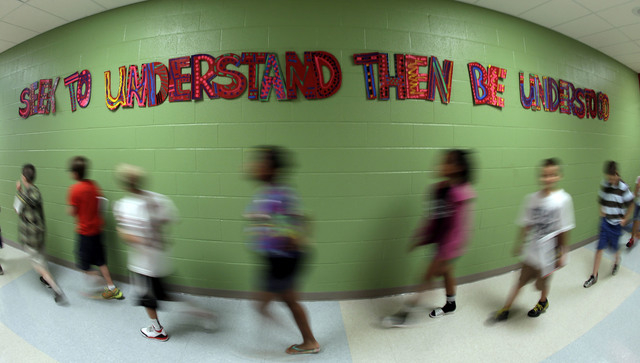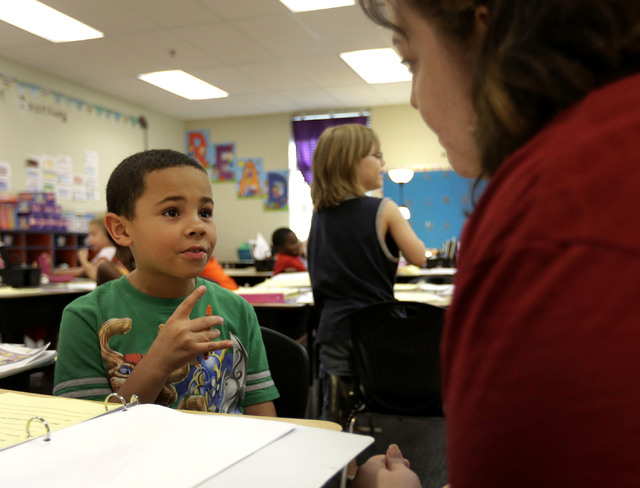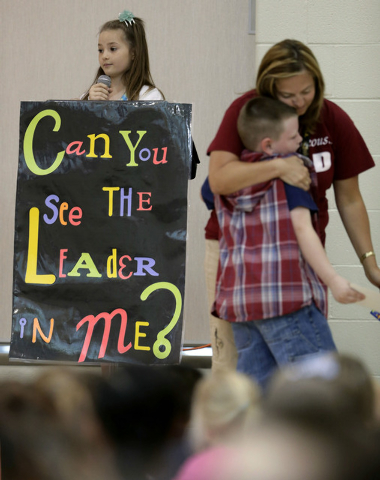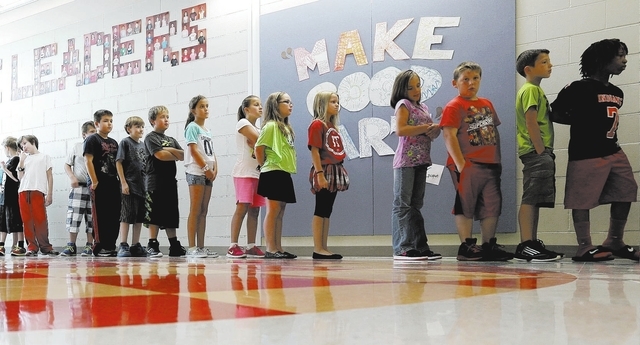Some schools see success with seven effective habits




INDEPENDENCE, Mo. — One year after Johnathan Kent kicked his principal and school “went all bad,” the 8-year-old was recognized at a recent assembly as the “Star of the Month” for being polite and helping his teachers.
The third-grader’s explanation for the turnaround: “I’m not doing what I did last year.”
But Emily Cross, principal of Indian Trails Elementary in Independence, Mo., is giving some credit to a program the school began using last year that is built around the late self-help guru Stephen Covey’s best-selling “The 7 Habits of Highly Effective People.” A 25th anniversary edition of the 1989 book will be released in November.
The nearly 1,500 mostly elementary schools using the program — called “The Leader in Me” — teach principles from the book. Those include “think win-win,” ”seek first to understand, then to be understood” and “synergize.” Teachers, for example, might ask students how historical figures like George Washington might have used the principles.
If a student gets into trouble, teachers and principals ask what habit could have helped him or her avoid the scrape.
When Johnathan’s principal asked the boy what habit led to his turnaround, he quickly responded, “Do first things first.” He said he didn’t finish his work last year.
Students typically are assigned leadership roles that range from class greeter to fish-tank cleaner. They also keep a leadership notebook in which they chart growth in an academic area. The notebooks also track a personal goal, such as the time spent learning to tie their shoes. Cross said the tracking is a big motivator for Johnathan.
“He sees that when ‘I’m in class putting first things first, my dot on my graph is going up,’ and he’s proud,” Cross said. “He’s very confident now, and he wasn’t last year.”
The Leader in Me, which has started branching out into preschools and middle schools, is one of “literally dozens” of programs seeking to improve the school climate, said Paul Baumann, director of the National Center for Learning and Civic Engagement at the Denver-based Education Commission of the States, a nonpartisan group that researches education policy. He said most of the programs are run by nonprofits. The cost of the Leader in Me was “pretty high” in comparison, he said.
For a 400-student school, adopting the Leader in Me program would cost between $45,000 and $60,000 over the first three years.
The program’s developer, FranklinCovey, acknowledges the expense is one of the bigger challenges. Some schools are able to cover the cost using federal Title I money that’s awarded to schools that serve large numbers of low-income students. For schools that need help, there are foundations, community Chambers of Commerce or businesses that might be asked to help cover the cost, said Meg Thompson, who oversees the program for Salt Lake City-based FranklinCovey.
Not everyone is sold, though. Lakeview Elementary in Kirkland, Wash., a Seattle suburb, dropped the program this year after parents complained.
Lake Elementary parent Paul Devries said he found the program “cult-like” and “objected to the group mentality.” Some schools offer training sessions for parents.
“It’s our responsibility as parents to teach values to our kids, not for kids to come home and teach FranklinCovey’s values to us,” said Devries, 53, a fishery scientist and water resource engineer. “Kids should be able to be creative and think for themselves and not be automatons and repeat the seven habits.”
Asked how many schools had dropped out, FranklinCovey said that would be hard to calculate.
Before his death in July 2012, Covey disputed criticism that he simply repackaged his Mormon faith in the “Seven Habits.”
Backers say the program exceeded expectations.
“It is easier for kids at 5, 6, 7 to learn the habits than it is for us adults,” said Joel Katte, principal of Meadowthorpe Elementary in Raleigh, N.C.












